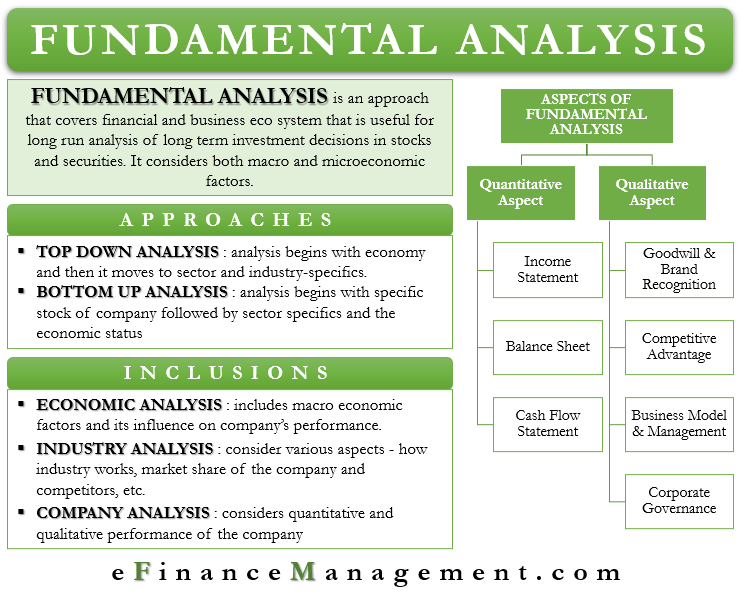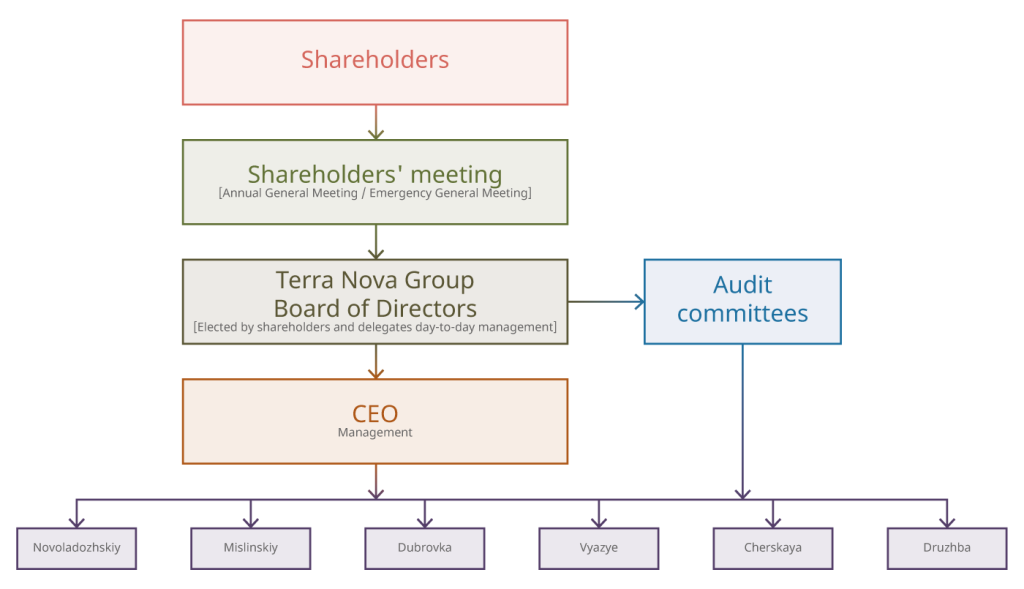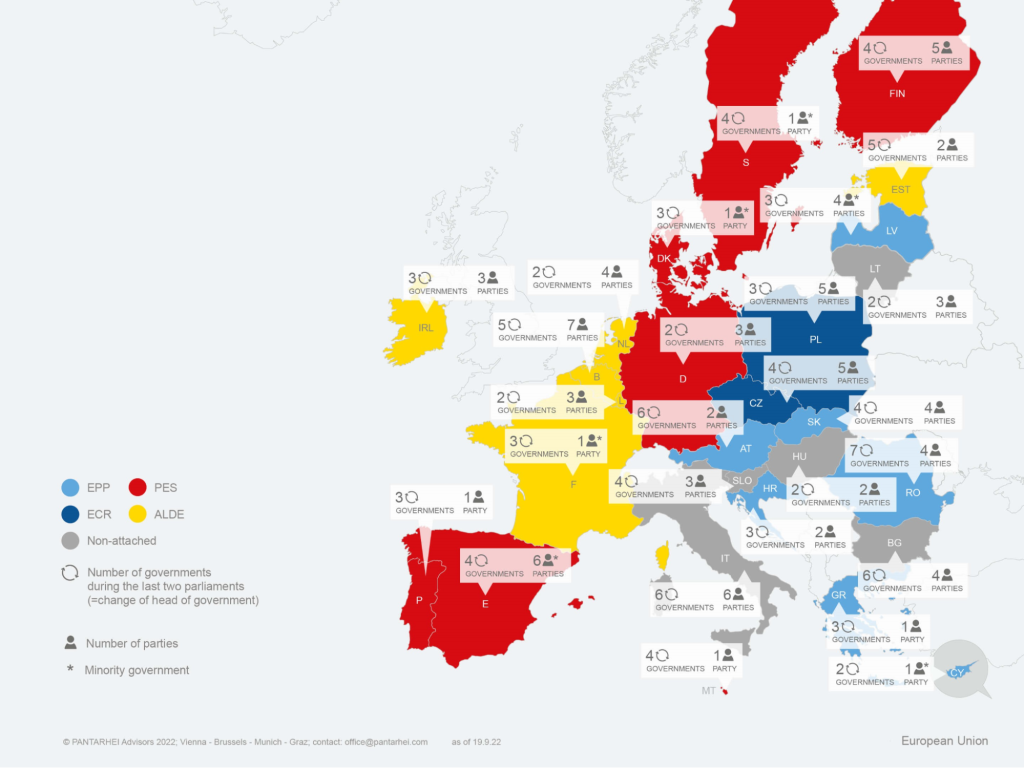Τοπική: θεμελιώδης ανάλυση στην Ευρωπαϊκή Ένωση
Στόχοι Μαθήματος:
- Understand the role of corporate governance in shaping a company’s operations. This includes learning about board composition, shareholder rights, and the transparency of business practices. These factors help you evaluate a company’s leadership and accountability.
- Learn how sustainability and ESG factors affect companies. You will explore how environmental, social, and governance issues are integrated into business strategies in Europe, which can influence investment opportunities and long-term business success.
- Assess the regulatory environment in Europe. This includes understanding the EU’s strict regulations, like GDPR and environmental standards, and how these affect companies’ operations. You will learn how compliance can reduce investment risks.
- Understand political stability and its impact on investments. Political factors, such as stability in EU member states, play a crucial role in investment decisions. You’ll explore how shifts in politics or policies, like Brexit, can affect market sentiment and investment strategies.
Εισαγωγή
Fundamental analysis involves evaluating a company’s intrinsic value by examining both qualitative και quantitative factors. These factors provide investors with insights into the company’s overall health, future growth potential, and financial stability. While quantitative factors focus on measurable data, such as financial statements, qualitative factors consider elements like management quality, brand strength, and industry position. Together, these factors form a comprehensive picture that helps investors make informed decisions about buying or selling stocks.

Εικόνα: Components of Fundamental Analysis
Περιγραφή:
This infographic explains θεμελιώδης ανάλυση, a method used to evaluate the οικονομική υγεία και economic performance of a company. It highlights two main approaches: Top-Down Analysis, which starts with the οικονομία and narrows down to industry-specific και company-specific factors, and Bottom-Up Analysis, which starts with the company and expands to broader sectors and the economy. It also distinguishes between quantitative (e.g., income statement, balance sheet) and qualitative aspects (e.g., goodwill, brand recognition).
Βασικά συμπεράσματα:
- Fundamental analysis is essential for understanding a company’s long-term investment potential.
- It involves analyzing both macroeconomic (e.g., economic trends) and microeconomic factors (e.g., company performance).
- Quantitative aspects focus on financial statements like the κατάσταση αποτελεσμάτων, ισολογισμός, και κατάσταση ταμειακών ροών.
- Qualitative aspects include factors like competitive advantage, business model, και εταιρική διακυβέρνηση.
Εφαρμογή πληροφοριών:
Fundamental analysis helps investors evaluate a company’s intrinsic value, making it useful for long-term investment decisions. It aids in identifying financially strong companies with good management and competitive positions, aligning with επένδυση αξίας strategies. By focusing on both quantitative και qualitative factors, investors can better assess κίνδυνος και potential returns.
20.1 Qualitative Factors
When conducting θεμελιώδης ανάλυση in the European Union, several EU-specific qualitative factors come into play. These factors, while not easily quantifiable, provide crucial insights into the long-term health and sustainability of companies operating within the European market. One significant area to focus on is corporate governance standards, which play a pivotal role in shaping how companies are managed, how they interact with stakeholders, and their commitment to ethical business practices.
Corporate Governance Standards in Europe
Corporate governance in the European Union is highly regulated and has been shaped by various EU-wide directives and national laws. These standards ensure transparency, accountability, and ethical business practices, which are key factors for investors considering long-term investments. The strength of corporate governance can impact a company’s reputation, operational efficiency, and overall sustainability.
- EU Corporate Governance Framework: The EU has implemented several initiatives to strengthen corporate governance, including the Shareholder Rights Directive και Corporate Sustainability Reporting Directive (CSRD). These frameworks ensure that European companies maintain transparency in their dealings with shareholders and comply with environmental, social, and governance (ESG) reporting standards.
- Παράδειγμα: Under the CSRD, large companies in Europe must report on their sustainability practices, including environmental and social impacts. This allows investors to assess how well a company aligns with long-term global sustainability goals.
- Παράδειγμα: Under the CSRD, large companies in Europe must report on their sustainability practices, including environmental and social impacts. This allows investors to assess how well a company aligns with long-term global sustainability goals.
- Board Composition and Diversity: European companies are increasingly focused on enhancing the diversity and independence of their boards of directors. Strong governance requires a mix of independent directors and diverse backgrounds to provide balanced oversight.
- Παράδειγμα: Countries like Νορβηγία have mandated gender quotas for corporate boards, requiring that a certain percentage of board members be women. This focus on diversity ensures a broad range of perspectives in corporate decision-making, which can lead to better long-term outcomes.
- Παράδειγμα: Countries like Νορβηγία have mandated gender quotas for corporate boards, requiring that a certain percentage of board members be women. This focus on diversity ensures a broad range of perspectives in corporate decision-making, which can lead to better long-term outcomes.
- Shareholder Rights and Engagement: European corporate governance standards emphasize the importance of shareholder rights, giving investors a greater voice in corporate affairs. Initiatives such as the Shareholder Rights Directive II ensure that shareholders have the ability to vote on key issues like executive pay, mergers, and acquisitions, which can significantly affect a company’s direction.
Παράδειγμα: Μέσα Γερμανία, shareholder meetings (AGMs) allow investors to vote on important issues like dividend payouts, board appointments, and company strategy. The ability to influence corporate decisions makes shareholder engagement a key qualitative factor in evaluating a company’s governance strength.
Εικόνα: Terra Nova Group Corporate Structure
Περιγραφή:
This organizational chart represents the corporate governance structure of the Terra Nova Group. The diagram starts with shareholders at the top, followed by a shareholders’ meeting, where annual general meetings or emergency general meetings occur. The Board of Directors is elected by shareholders and is responsible for managing day-to-day operations. The CEO oversees the management of Terra Nova Group’s operations. The audit committees, which report to the Board of Directors, help ensure compliance and financial integrity. At the bottom, various branches or subsidiaries, including Novoladozhsky, Mislinskiy, Dubrovka, Vyazye, Cherskaya, and Druzhba, are indicated under the CEO’s supervision.
Βασικά συμπεράσματα:
- ο shareholders have the ultimate authority in the governance structure.
- ο Board of Directors is elected by shareholders and oversees the company’s management through the CEO.
- Audit committees play a vital role in ensuring financial integrity and compliance.
- The structure demonstrates a clear hierarchy from shareholders to operational management.
Εφαρμογή πληροφοριών:
Understanding a company’s corporate governance structure is crucial for investors. It provides insights into λήψη αποφάσεων processes, accountability, και management oversight, which are essential for assessing investment risks and the company’s long-term viability. Familiarity with this structure helps investors evaluate how well shareholder interests are represented.
Sustainability and ESG Considerations
In Europe, περιβαλλοντικά, κοινωνικά και διακυβέρνησης (ESG) factors are becoming increasingly important in fundamental analysis. Many European companies are required or encouraged to disclose their ESG practices, particularly as the EU shifts towards sustainable finance and environmentally responsible investing.
- Environmental Regulations: The EU is at the forefront of climate action and sustainability, which affects industries across the continent. Companies that prioritize sustainable practices and meet Πράσινη Συμφωνία της ΕΕ requirements are likely to attract more investment. Compliance with these regulations is seen as an indicator of long-term sustainability and resilience.
- Παράδειγμα: Companies involved in ανανεώσιμη ενέργεια ή clean technology, όπως Siemens Gamesa in the wind power sector, are favored for their commitment to sustainability and alignment with the EU’s environmental goals.
- Παράδειγμα: Companies involved in ανανεώσιμη ενέργεια ή clean technology, όπως Siemens Gamesa in the wind power sector, are favored for their commitment to sustainability and alignment with the EU’s environmental goals.
- Κοινωνική ευθύνη: European companies are expected to uphold high standards in terms of labor rights, diversity, and community engagement. Investors increasingly view companies with strong social responsibility as less risky and more resilient in the long term.
- Παράδειγμα: Γιουνίλβερ has built a strong reputation for its social responsibility initiatives, focusing on sustainable sourcing, fair labor practices, and community engagement across its global supply chain.
- Παράδειγμα: Γιουνίλβερ has built a strong reputation for its social responsibility initiatives, focusing on sustainable sourcing, fair labor practices, and community engagement across its global supply chain.
- Corporate Governance and Executive Compensation: In Europe, there is a growing emphasis on linking executive compensation to ESG performance. This ensures that company leaders are incentivized to achieve long-term sustainability goals rather than focusing solely on short-term profits.
- Παράδειγμα: Μέσα Γαλλία, companies are increasingly tying CEO pay to environmental and social outcomes, a trend that aligns with the broader focus on corporate sustainability.
- Παράδειγμα: Μέσα Γαλλία, companies are increasingly tying CEO pay to environmental and social outcomes, a trend that aligns with the broader focus on corporate sustainability.

Εικόνα: ESG Cluster Distribution and Score Analysis
Περιγραφή:
The image consists of two charts representing the distribution and scores of ESG (Environmental, Social, and Governance) clusters. The pie chart on the left shows the proportion of companies in different ESG clusters: Higher ESG (Cluster X=0, Y=0), Middle ESG (Cluster X=1, Y=0), και Lower ESG (Cluster X=2, Y=0). It illustrates that most companies fall under the Higher ESG cluster (496), followed by Middle ESG (389), and Lower ESG (280). The bar chart on the right indicates the ESG scores for different factors: ZENV_S, ZSOC_S, και ZGOV_S, representing environmental, social, and governance scores, respectively. The scores suggest that social scores (ZSOC_S) are the highest among the three, followed by environmental (ZENV_S) and governance (ZGOV_S).
Βασικά συμπεράσματα:
- ο Higher ESG cluster has the largest number of companies, suggesting strong ESG adoption.
- Social scores are generally higher compared to environmental and governance scores, indicating a focus on social issues.
- Lower ESG clusters have fewer companies, highlighting potential areas for ESG improvement.
Εφαρμογή πληροφοριών:
This data can help investors understand the ESG distribution across companies and the specific emphasis placed on environmental, social, and governance factors. For investment decisions, investors can use this information to prioritize ESG-aligned investments and assess where companies may need to improve their ESG performance. Additionally, understanding the dominance of social scores could help investors identify sectors or companies that are socially conscious but may need to enhance their environmental ή governance strategies.
Regulatory Compliance and Political Environment
The political and regulatory environment in the European Union is another key qualitative factor that investors need to consider. Europe’s regulatory landscape is complex, with stringent rules that can affect a company’s operations, particularly in industries like finance, energy, and pharmaceuticals.
- Regulatory Environment: The EU has some of the world’s strictest regulations, especially in terms of consumer protection, environmental standards, and data privacy (e.g., GDPR). Companies that excel in regulatory compliance are often viewed as less risky, as they are less likely to face fines or legal challenges.
- Παράδειγμα: Pharmaceutical companies σαν Σανόφι must navigate extensive regulations concerning drug approvals, safety standards, and pricing controls. Strong compliance records boost investor confidence in such companies.
- Παράδειγμα: Pharmaceutical companies σαν Σανόφι must navigate extensive regulations concerning drug approvals, safety standards, and pricing controls. Strong compliance records boost investor confidence in such companies.
- Political Stability: Political stability across the European Union is generally high, though investors need to be aware of regional political shifts, such as Brexit or policy changes within individual member states. Companies operating in politically stable countries like Γερμανία ή Σουηδία are often seen as safer investments due to lower geopolitical risk.
- Παράδειγμα: The uncertainty around Brexit created volatility for UK-based companies, highlighting the importance of understanding political risks when investing in European firms.
- Παράδειγμα: The uncertainty around Brexit created volatility for UK-based companies, highlighting the importance of understanding political risks when investing in European firms.
Εικόνα: Political Parties in European Governments
Περιγραφή:
This map illustrates the distribution of political parties within European Union governments, represented by four main party groups: EPP (European People’s Party) in blue, PES (Party of European Socialists) in red, ECR (European Conservatives and Reformists) in dark blue, and ALDE (Alliance of Liberals and Democrats for Europe) in yellow. The numbers next to each country show the number of governments during the last two parliaments (indicating the change of the head of government), and the number of parties within the current government. Countries shaded in gray represent those with non-attached parties. Stars indicate minority governments.
Βασικά συμπεράσματα:
- The map highlights the political diversity across European nations, with different countries being led by varying party coalitions.
- PES and EPP are the dominant party groups in many countries, often leading the government.
- The presence of minority governments (marked with stars) indicates regions of political instability or weaker majorities.
- Countries with multiple parties in government suggest a more coalition-based approach to governance.
Εφαρμογή πληροφοριών:
Κατανοώντας το political landscape of Europe is crucial for investors and businesses considering opportunities in the region. The dominance of certain political parties and the frequency of government changes can influence policy stability, economic decisions, and market sentiment. This data helps in political risk assessment, allowing for more informed decision-making regarding επενδύσεις και business strategies within Europe.
συμπέρασμα
Qualitative factors such as corporate governance standards, ESG considerations, και το regulatory environment play a critical role in fundamental analysis for European companies. Investors in the EU must assess a company’s leadership, board diversity, commitment to sustainability, and regulatory compliance to gain a full understanding of its long-term prospects. Strong corporate governance, alignment with ESG goals, and effective management of political and regulatory risks make European companies more attractive for investors seeking stability and sustainability in their portfolios.
Βασικές πληροφορίες μαθήματος:
- Corporate governance is key to investment confidence. Strong corporate governance, including transparency, shareholder rights, and board diversity, enhances a company’s credibility. This makes the company a more attractive and safer investment choice in the long run.
- Sustainability and ESG factors are essential for long-term growth. Companies that prioritize environmental, social, and governance factors are seen as more sustainable. ESG factors help you identify companies that are less risky and more aligned with global trends, which is crucial for long-term investment success.
- Regulatory compliance ensures stability and trust. Companies in Europe that adhere to strict EU regulations, like those regarding data privacy and environmental impact, are considered safer investments. This regulatory compliance minimizes the likelihood of legal challenges and fines, boosting investor confidence.
- Political stability plays a significant role in investment security. Countries with stable political environments, such as Germany and Sweden, are generally safer for investors. Conversely, political shifts, like Brexit, can introduce uncertainty, making it crucial to assess the political risks when considering investments in European firms.
Τελική δήλωση:
By understanding the importance of corporate governance, sustainability practices, regulatory compliance, and political stability, investors can make more informed decisions in the European market. These factors provide valuable insights into the long-term health and sustainability of companies, helping ensure more secure investments.



